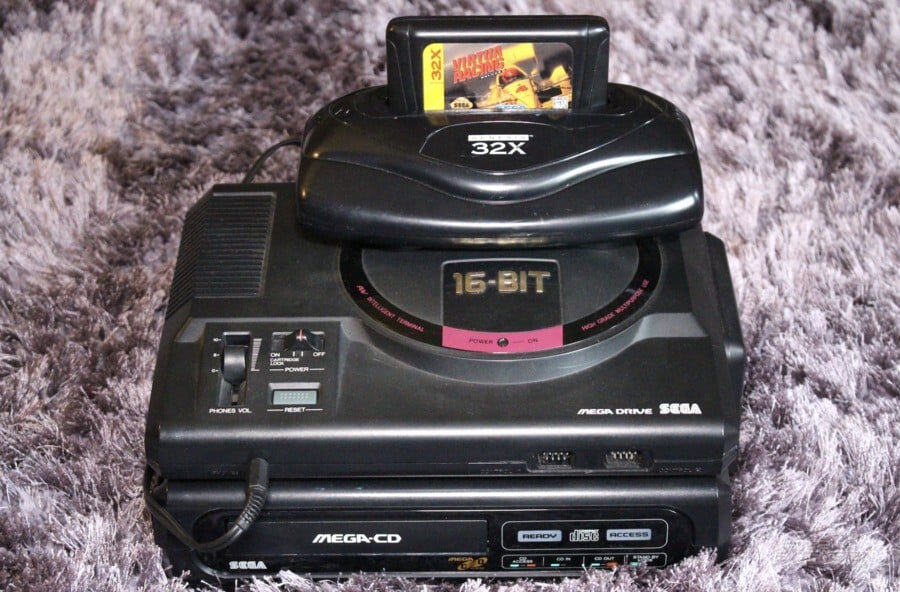
The reasons for Saturn's failure in the face of the PS1 and N64 have been covered multiple times over the years, but now Sega's Yosuke Okunari has added his insight into the matter.
Speaking in his new book, Sega Hard Senki, Okunari – who has been instrumental in the company's recent efforts to celebrate its history – places a large amount of the blame at the feet of the highly divisive Mega Drive / Genesis add-on, the 32X.
Envisaged as a means of keeping its massive North American Genesis market alive, the bolt-on device boosted the power of the console but flopped commercially, with Sega ceasing support fairly quickly.
"When it became clear that the 32X was a failure, Sega of America quickly terminated it and prepared to move up the North American launch of the Sega Saturn," says Okunari (thanks, John Harrison).
The 32X proved to be a costly distraction, not just in terms of development capacity but in terms of hardware, as Okunari explains. "Sega had devoted much of its game development capabilities to the 32X (and much of its hardware stock, since the 32X used the same chip as the Saturn) during the 1994 year-end sales season."
This meant that Sega couldn't focus all of its energies on making its 32-bit console a success, Okunari argues. "The company was unable to focus enough on its main hope, the Saturn, and it was also unable to protect the Genesis in North America. Although the success of Virtua Fighter could have given the Saturn a big lead in Japan, the console was often out of stock during its first year because of the parts shortage. In addition, the lack of other strong titles prevented the Saturn from gaining a big lead on the PlayStation. Furthermore, the Genesis was unable to compete on even ground with the SNES as it had done in the past. The cost of these failures was too great, and Sega was never able to defeat its rivals in America and Europe again."
Saturn sold just 9.26 million units during its lifespan – PS1 managed to shift 102.49 million. However, as we've said many times on this very site, that doesn't mean Saturn was a failure – in fact, it is home to some of the best games of its generation.
